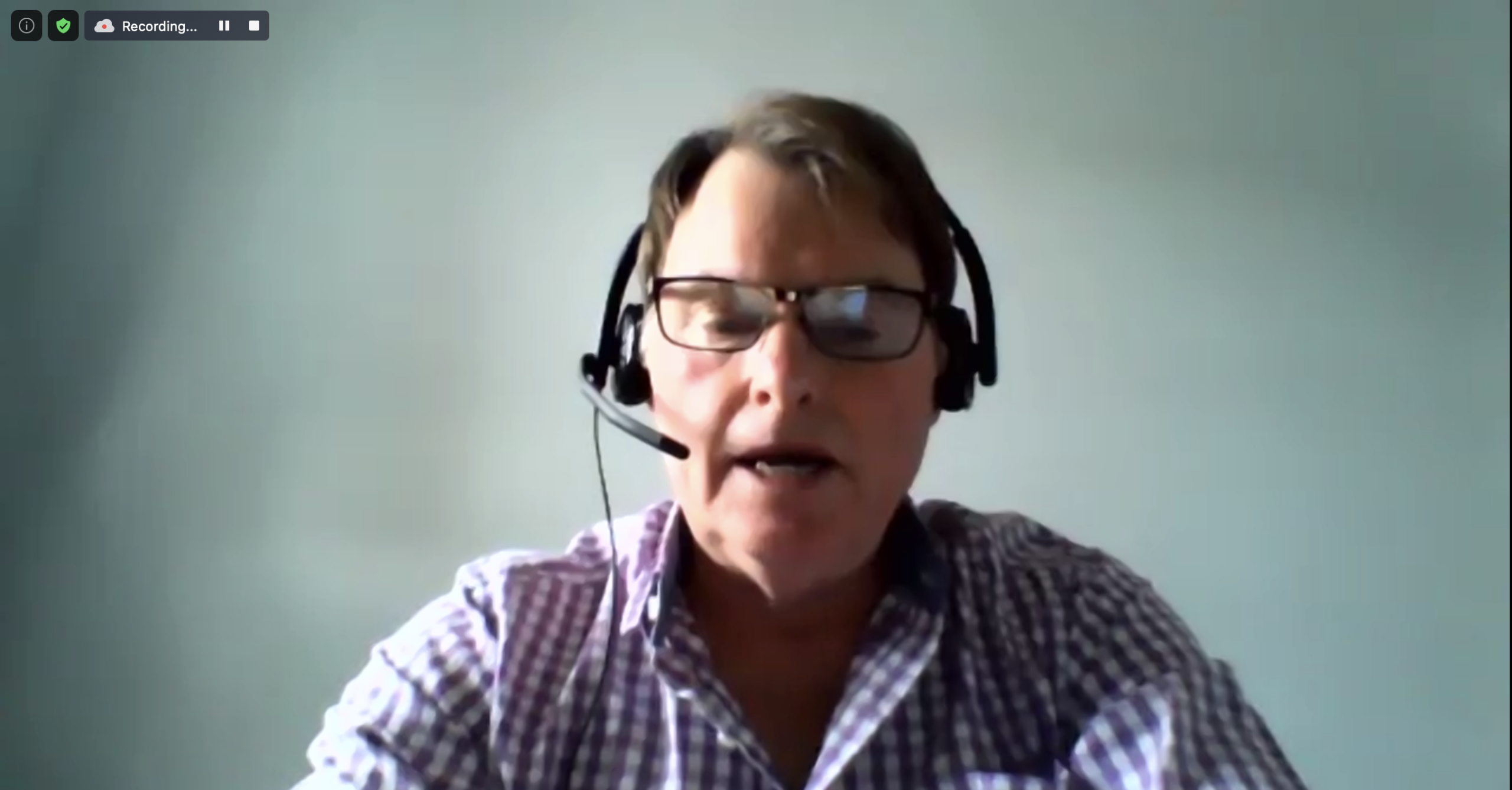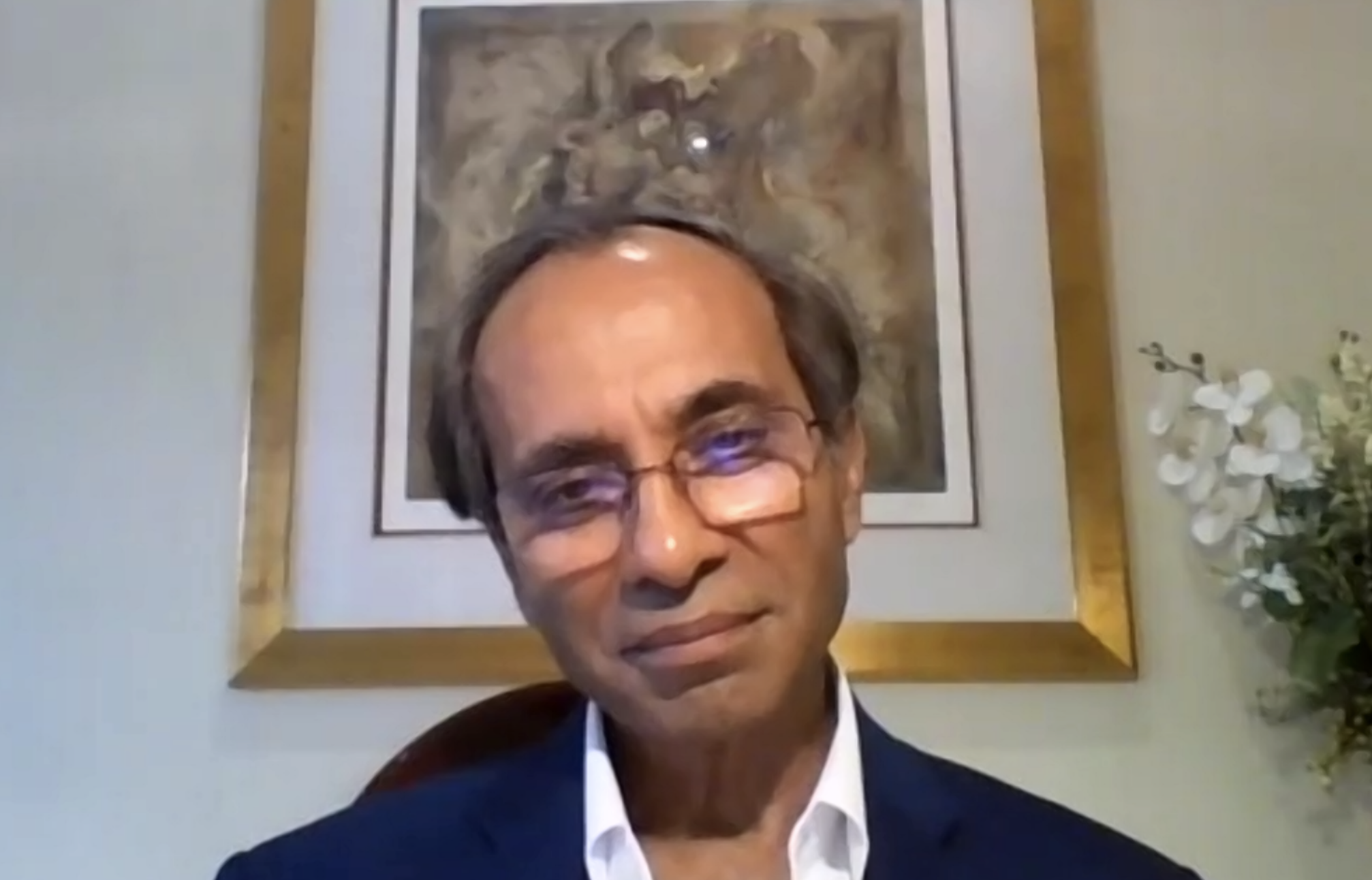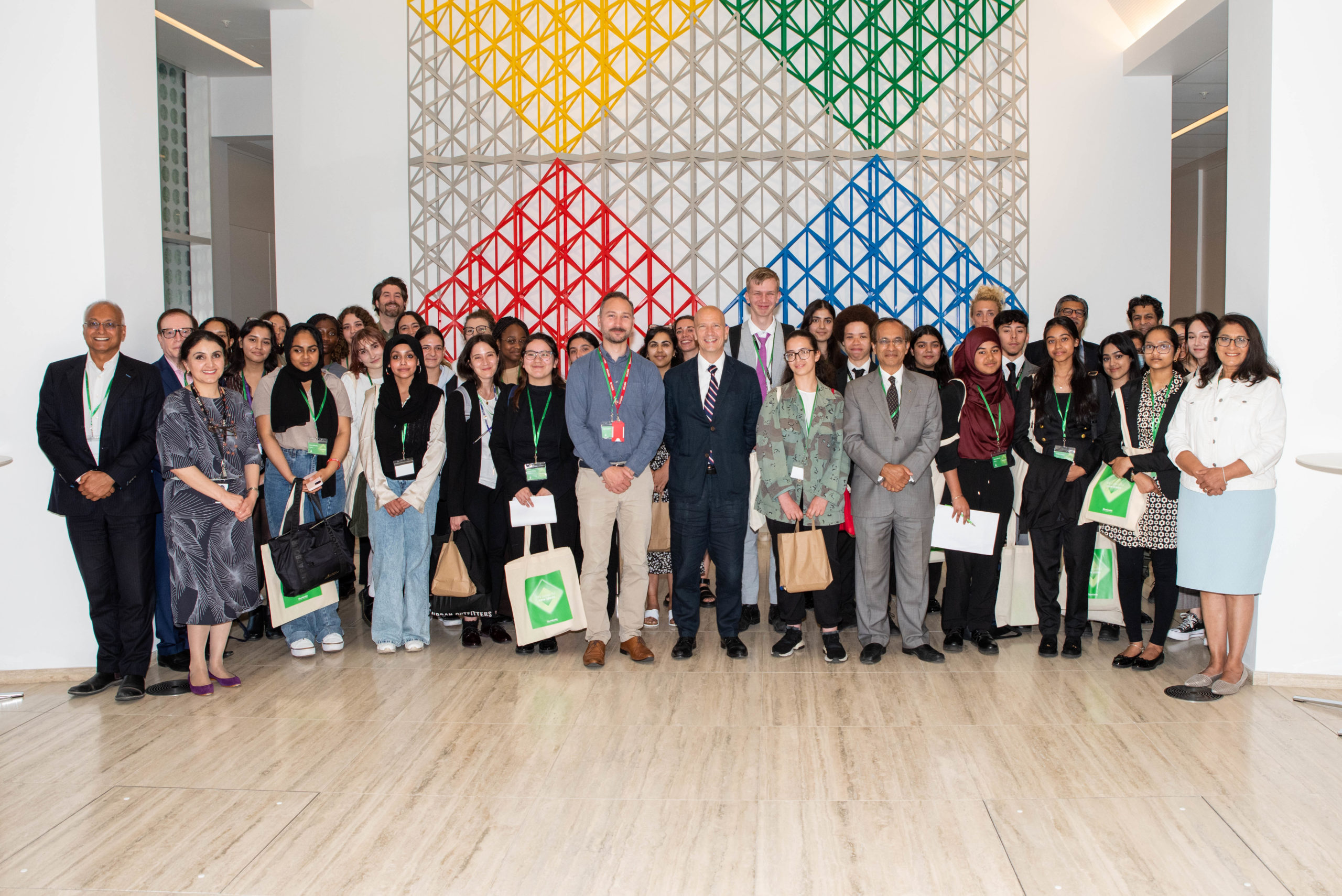The COVID-19 pandemic has affected our working and personal lives like no other event in recent memory. An unprecedented level of research over the past five months has advanced knowledge of the disease, but many uncertainties remain.
On 11 June, 2020, John McConnell, Editor of The Lancet Infectious Diseases, spoke with Mahmood Ahmed, Chairman of the Aga Khan Foundation UK National Committee in a webinar entitled: ‘COVID-19 – the current situation and prospects for the UK and the world’. Over 180 people tuned in to listen to the discussion.
During an enlightening discussion, John McConnell was able to separate the knowns from the unknowns of COVID-19. He also offered some important insights into what concrete next steps should be taken for the world to defeat this novel disease.
Highlights of the discussion follow.
Please note, a video recording is available (above) and a podcast recording (at the end of the article).

The UK prospects, face masks and a vaccine
Mr Ahmed began the discussion by asking Mr McConnell about the current state of affairs in Britain – namely the beginning of easing of the lockdown rules. Mr McConnell’s feeling was that we ought to be cautious easing too many restrictions at once, as it makes it more difficult to track how the infection spreads if there is a following uptick in cases.
Mr McConnell also made the case for wearing face masks in public indoor spaces, as potentially an effective way of limiting the spread of the infection.
He went on to predict that there was about a 50% chance of finding a vaccine by the end of the year, although it may not necessarily be widely available in that time frame. With around a hundred vaccine programmes currently ongoing around the world, and about 10 programmes currently undergoing clinical trials, he remarked on how the cooperation between governments and scientific communities was encouraging.
“I don’t know where you draw the line between disease prevention and people’s livelihoods… poverty itself is a cause of premature mortality.”
The developing world context
Mr Ahmed then turned the conversation to the developing world, pointing out that in many densely-populated countries, social distancing was nigh-on an impossibility, and that lockdown would almost certainly mean starvation for many. Mr McConnell agreed that the situation was bleak for many in such contexts, citing a recent World Bank report that suggested that necessary responses to COVID-19 were likely to throw roughly 49 million people around the world into extreme poverty. Mr Ahmed pointed out that a multi-disciplinary approach was very much needed to mitigate the negative effects on the world’s poorest.
Mr McConnell also pointed out that it was intriguing that the epidemic had not yet taken off in Africa in the same way as it has in other continents, saying that as of yet there were no clear answers as to why this was the case. That said, he suggested that it would be remiss of the global community to be relaxed about this, as the consequences of a large-scale epidemic in Africa would be devastating to communities there.

Travelling
Some audience members were keen to ask Mr McConnell about disease transmission on transport, and again, the Lancet editor lauded the advent of the rule about wearing face masks on buses and trains, for example. He suggested that in fact, due to travelling by such means involving a high turnover of people, that this in effect would limit the opportunity for germs to spread on transport.
Mr Ahmed asked about plane travel specifically, noting that holidays and work travel had almost entirely come to a halt. Mr McConnell remarked that there was currently little evidence of transmission on planes, but that might be due to the fact that this type of travel had reduced so drastically. It was certainly possible that the recycled air used on planes could pose more of a risk than the ventilation systems in public buildings, but he still noted that so far, he had seen no cases of outbreaks having come from time spent in aeroplanes.
“One concrete thing we must do, when we have the vaccines available, is make sure that they are equally available to everybody around the world.”
Looking to the future
Mr McConnell suggested that the best way the world can fight this infection would be to ensure that every country has access to the vaccine, or vaccines, when they become available. This would need to be done through a central purchasing mechanism, he explained, for which models already exist. It was clear that without equal access to this – from the poorest to the richest in society – that we would not be able to eradicate the disease or lift many out of difficult social distancing or lockdown circumstances.
He also asserted that it was likely that after the first couple of waves of the disease that the population would build up “a substantial level of immunity”, and that such an outcome would mean that future outbreaks would likely be more localised. Thus, rather than undergoing such a disruptive situation as another full lockdown would be, he suggested that more local outbreaks might lead to regional lockdowns to help control the spread of the disease. So whilst Mr McConnell admitted that it was unlikely we would be able to eradicate the disease in the near future, he optimistically posited that future outbreaks would be far less disruptive to society and to the economy.



